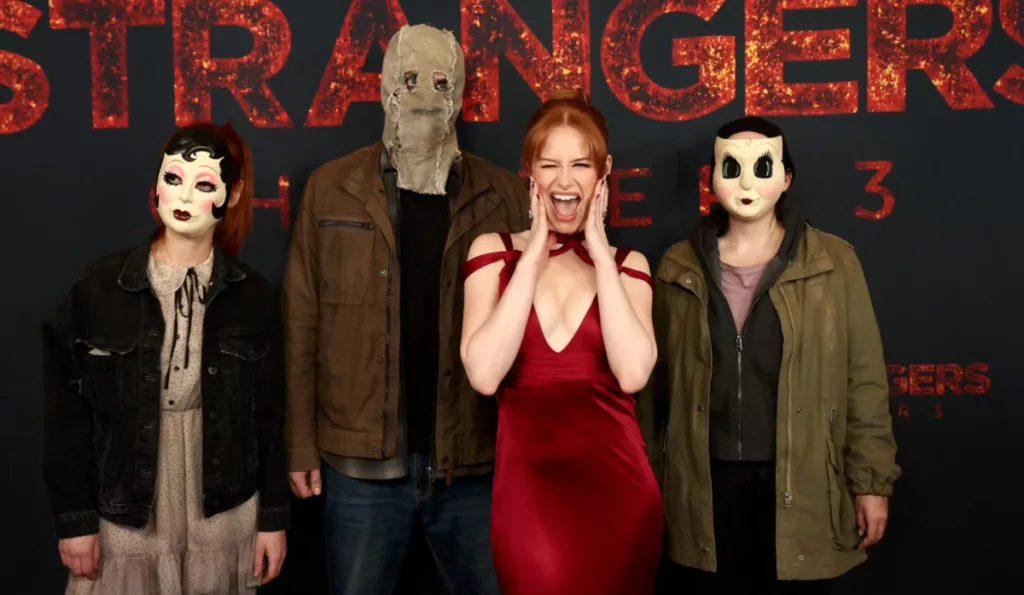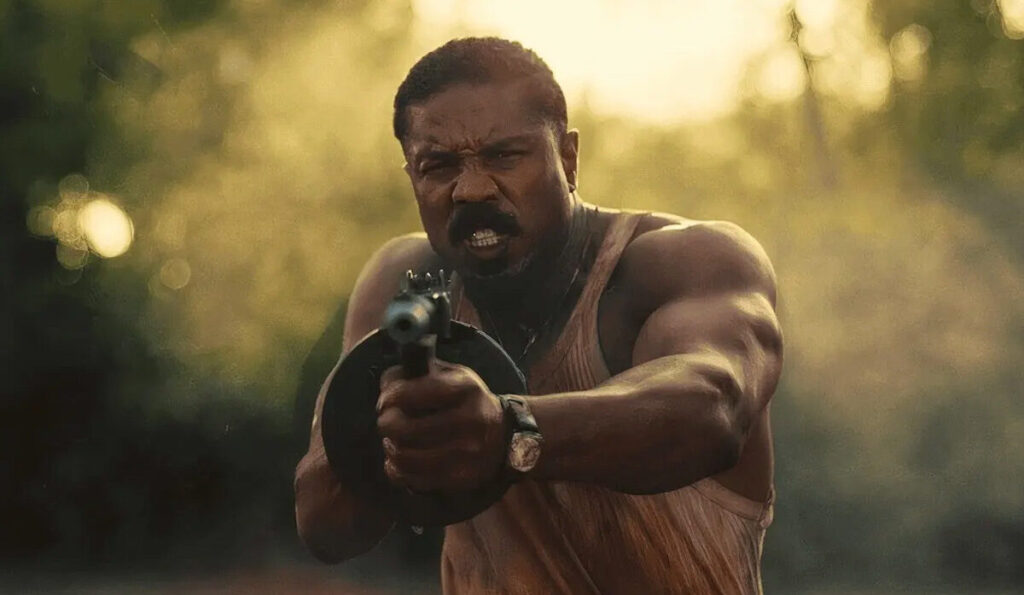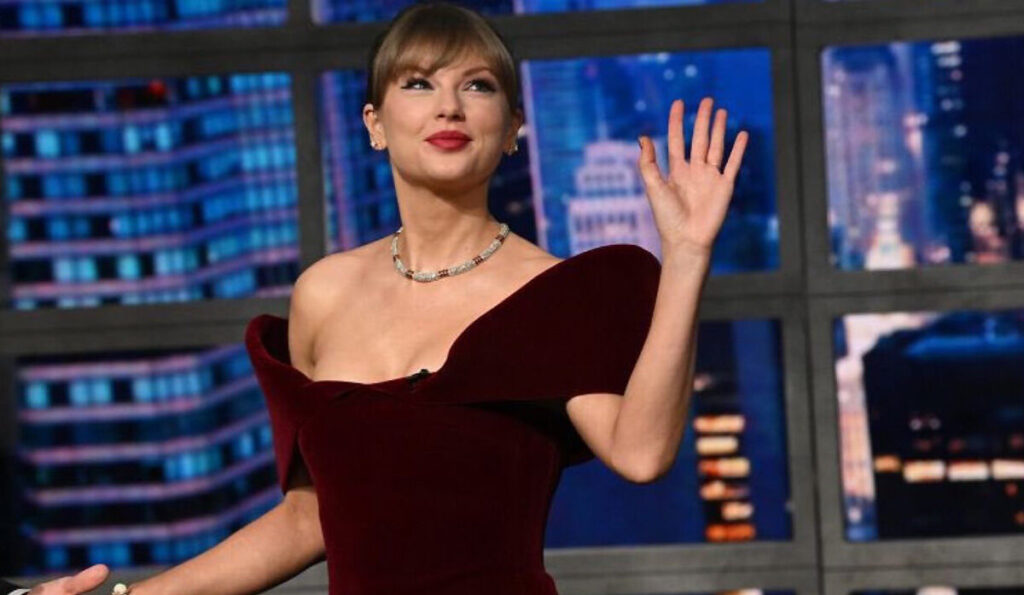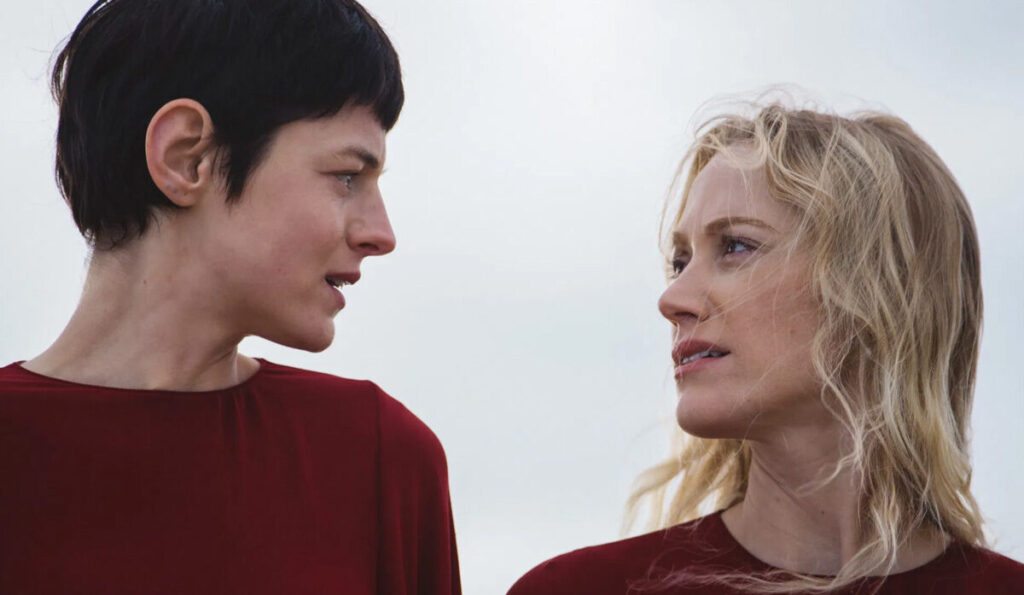'Bad Apples' peels back the rot in a broken education system with sharp satire and unsettling charm.
A bad apple spoils the whole bunch, which is just what 10-year-old Danny does to Maria’s (Saoirse Ronan) class. Swedish director Jonatan Etzler’s English debut is a darkly comic tale about how far a teacher will go to stop her class from being disrupted.
Bad Apples starts as a generic and earnest drama about a young teacher struggling with a student who needs specialist help to stop bringing his whole class down. The film announces its true color when it takes a zany leftfield turn into a sharp satire on the modern-day British education system.
Saoirse Ronan Shines in a Bad Apple, Satirical Take on Educational System
Ronan’s Miss Maria is a polite but slightly meek primary school teacher struggling to handle 10-year-old Danny (Eddie Waller), who distracts her whole class with his frequent outbursts of anger. Danny evolves from throwing pencils and swearing to pushing nerdy Pauline (Nia Brown) down the stairs and breaking her arm. The flustered teacher feels cornered when parents and teachers blame her for the incident rather than acknowledging that the boy needs more help than the school can give him.
Maria decides to confront Danny’s father about his unruly behavior. Why should she police the boy when his father doesn’t have the time, and why is Danny’s behavior threatening to ruin her career? His delivery driver father is trying his best, but he doesn’t have the time to give Danny the discipline he needs at home. An after-school encounter with Danny vandalising cars leads to a chain of events, and suddenly, the child is locked in Maria’s basement. She leaves him there overnight, hiding him from the upcoming school inspection, until he calms down. Without his disruption in school, Maria finds her class delightfully engaged and willing to learn. The trees grow without the rotten apple, and Maria blossoms into the teacher she has always wanted to be.
In a sane world where safeguarding matters, Maria would have alerted authorities about Danny’s home life and worked on getting the child home. Bad Apples throws realism out the window, as Maria keeps the boy locked up as a prisoner. When she starts to feel bad about her actions, she doesn’t return to Danny and confess. She instead brings him video games, buys him furniture, and tries to create a nice room in her dank basement.
At the same time as the boy lives harnessed in her basement like a stray dog, Maria sits in school meetings about the missing child and meets his father to help try to find Danny. His classmates are less concerned with his absence, rejoicing in the fact that they can learn without the disruption. Soon, everyone moves on without Danny. It would be tragic if it weren’t written in such a witty way.
Bad Apples isn’t afraid to go in a direction that makes the audience uncomfortable. It pushes the plot and the comedy into unexpected places, keeping audiences on the edge of their seats. Throughout the film, there is a sense that the narrative could go in any direction. While the third act doesn’t quite match the energy of the first two, the bold swings will keep you hooked.
The first act portrays Maria as a mousy pushover who goes out to dinner solo and lives alone in a half-furnished home. With Danny in her basement, she grows in confidence and becomes a better person and the teacher she has always wanted to be. But kids are not as simple as this, and sometimes rotten apples lurk in the basket.
While Danny’s arc goes from a rotten boy to someone more layered and sympathetic, star student Pauline has a reverse trajectory. What starts as adoration for her favorite teacher becomes something more sinister as she starts manipulating Maria. Bad Apples succinctly breaks down the many ways children can be terrifying.
Based on the novel by Danish author Rasmus Lindgren, Bad Apples is a purposefully far-fetched scenario that goes so extreme it quickly ventures into the absurd. Audiences may be inclined to laugh at the misfortune of children and feel bad about doing so. As the film becomes wilder and wilder, proudly making bold swings, it becomes clear that the audience is laughing with the script, not at it.
Tonally, Bad Apples is confusing. The subject of teachers struggling to handle disruptive kids is a serious matter that will be relevant to many educators and parents. This topic is paired with a serious performance from Saoirse and a soundtrack better suited to a thriller. Yet, Jess O’Kane’s script is written with a sharp tongue that balances the serious themes and the absurdity, never punching below at the disenfranchised children of the UK.
As darkly comic as Bad Apples is, it always maintains Danny as a compassionate character. This film understands that disruptive children are far more complicated than they appear on the surface. They are a product of their environment, upbringing, and education. The bad guys here are higher powers who don’t give teachers the resources they need.
The performances are the glue in Bad Apples. Ronan plays the role entirely straight and underplays the absurdity of the script. An over-the-top comedic performance would topple this film over, yet one too solemn could remind the audience of the dark stakes at play. A plot involving her ex-boyfriend and current colleague (an underused Jacob Anderson) appears cut down for time. It lurks in the background of the film and gives context to Maria’s lack of confidence, but is never given the time required to feel relevant to the whole story.
First-time actor Waller, who plays Eddie, is a tremendous talent and more than holds his own against the Oscar-nominee. He perfectly encapsulates the pent-up anger of a child with the world against him, making him a sympathetic boy who needs compassion and not a monster who deserves to be chained up in a basement. Brown is also a scene-stealer as the terrifying Pauline, who transforms into a tiny yet no less scary Annie Wilkes. Her endless optimism and singing are as chilling (or maybe even more so) as Eddie’s vandalism and fist-throwing.
Bad Apples does get a little weighed down by the apple metaphors. The film opens with the school tour of the apple factory being postponed after Danny throws his shoe in the machine. Throughout the 95 minutes, apple visuals appear to symbolize Danny’s effect on his surroundings. After the on-the-nose opening metaphor, the movie didn’t need to add any more worm and apple visuals to get its point across.
Bad Apples uses a warped, amped-up scenario to satirize the problems with the education system. Scared of inspectors, competitive parents who believe their child can do no wrong, and a system that truly does not have time to care, being an underpaid teacher is not easy. In its own way, Bad Apples uses snark and zaniness to make a much-needed point about teaching and parenthood. Perhaps the message gets lost in the inane ending, but the journey there is full of unexpected thrills and laughs.
Rating: B
Follow us on MSN for more content like this.
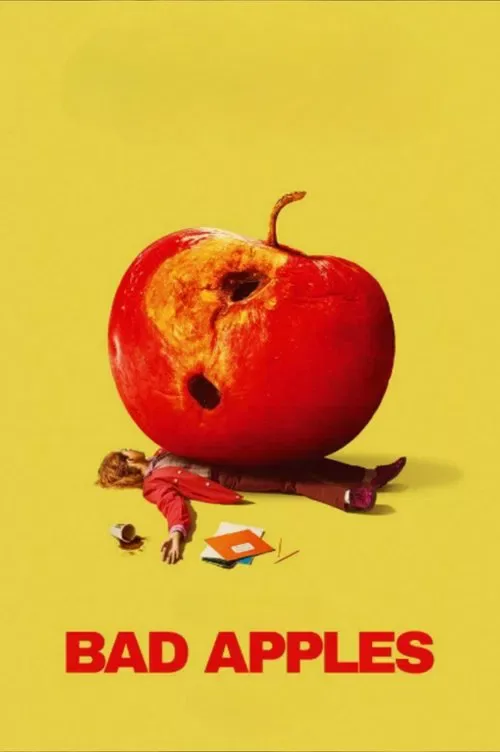
Bad Apples
Maria, a primary school teacher, does her best to inspire a class of 10-year-olds, but is unable to because of one unruly and chaotic student. With her career in question and the child’s behavior spiraling, she makes a series of bad decisions that lead to her accidentally taking and locking this “bad apple” in her home. Maria tries desperately to backtrack, but when the class starts flourishing and the staff and parents are thrilled with the improvement, she finds herself in a very complicated predicament.
Release Date: October 9, 2025
Director: Jonatan Etzler
Cast: Saoirse Ronan , Jacob Anderson , Sean Gilder





